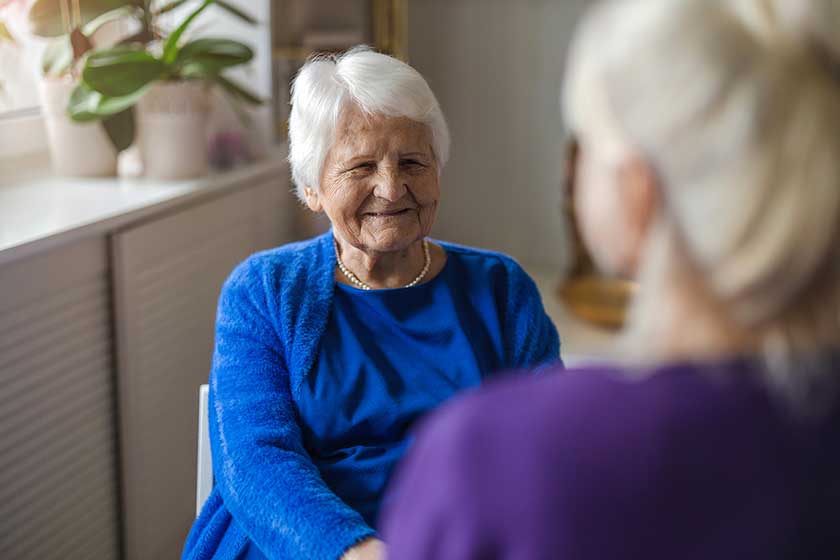Change is the only constant, they say, and it rings especially true as one steps into the golden chapters of life. Transitional care in senior living stands at the crossroads of change, offering a guiding hand as individuals move from hospital to home, from constant medical care to a more independent lifestyle. Navigating this shift demands not just specialized care but also a nurturing space that acknowledges its residents’ emotional and physical journey.
In our retirement community, we recognize the delicate balance required to make a change as smooth as possible. Our transitional care services are designed to provide a seamless shift for your family members, ensuring they receive the appropriate attention and rehabilitation during convalescence. Each resident is supported by a dedicated team, fostering an empowering and dignified recovery.
Our senior living approach is centered on creating an environment that feels like home. The comfort and well-being of your loved ones is our top priority. From medical care to social activities, we blend professional oversight with a personal touch, ensuring that every individual’s unique needs are met with respect and compassion.
Safe and Supportive Environment for Recovery
Transitional care in a senior living home is designed to offer a safe and supportive environment. The overall setting of the community combines the comforts of home with the reassurances of a healthcare setting. The team members work tirelessly to foster an environment that promotes healing, attending to residents’ needs promptly and professionally.
Safety is a top priority in the community, with measures such as emergency call systems, non-slip surfaces, and easy-to-navigate layouts ensuring the physical safety of residents. A homely environment and adequate medical support foster a sense of security among the residents. As your loved ones adapt to their new living situation, this safe environment greatly aids their recovery.
Assistance with Daily Activities during Rehabilitation
Rehabilitation often requires extra assistance with daily activities initially. Transitional care steps in here, providing necessary help and guiding residents as they gradually regain their past abilities. This help could range from assistance with personal hygiene, meal preparation, or simply moving around the community.
Each team member is trained to offer the necessary help to residents while respecting their individuality and privacy. By providing this professional yet thoughtful assistance, transitional care in senior living encourages residents to regain their independence progressively. It’s a powerful reminder that needing help isn’t a sign of weakness; it’s just another step on the road to recovery.
Continuity of Care and Medical Oversight
Continuity of care is vital when transitioning from a hospital to a senior living home post-illness or surgery. The community is committed to maintaining this continuity. The provision for regular checkups and medical oversight ensures prompt detection of any health issues.
With access to a skilled team and a thoroughly compiled health record for each resident, transitional care ensures seamless maintenance of medical care. Regular updates about changes in residents’ health conditions help doctors and therapists deliver personalized care. This high level of medical oversight significantly reduces the chance of hospital readmissions, making the path to recovery smoother and more efficient.
Physical, Occupational, and Speech Therapies as Needed
Transitional care in a senior living community often includes access to various rehabilitative therapies. Physical therapy helps residents regain strength and mobility, while occupational therapy assists them in relearning daily living skills. Speech therapy is also available for those who may need it, improving communication abilities that may have been lost or diminished due to health issues.
In these therapies, residents receive personalized care tailored to their specific needs. A physical therapist might introduce exercises to improve balance and prevent falls, while occupational therapists can offer strategies to manage medications or prepare meals safely. Speech therapists work with those with language difficulty, providing techniques to enhance expression and understanding.
Social Interaction and Peer Support
The value of social interaction in the healing process is recognized in transitional care. Interaction with peers facing similar challenges creates a support system within the community. Scheduled activities, shared meals, and common areas offer numerous opportunities for residents to connect, share their experiences, and support each other.
Through these interactions, residents forge friendships that uplift their spirits and contribute to their emotional well-being. This peer support is an intangible yet vital part of the recovery process. It encourages active participation in community life, improving mood, reducing feelings of isolation, and fostering a sense of belonging.
Peace of Mind for Family Members
Choosing transitional care for a loved one is a decision often fraught with concern. However, knowing that professional team members are caring for them around the clock provides family members with much-needed peace of mind. They can rest assured that their loved ones can access medical care, help with day-to-day activities, and are safe in a community that looks after their best interests.
Family members are reassured that their loved ones won’t have to face recovery alone. The community keeps the family informed and involved in care plans, helping maintain the bonds that are so crucial during rehabilitation. This peace of mind allows families to balance their own lives with the needs of their loved ones, safe in the knowledge that a dedicated team is looking after them.
A New Beginning with Us
We open our arms and hearts to those seeking a place where care comes with understanding and activities with joy. Your loved ones deserve a smooth transition; we are here to provide just that. Reach out to us and take the first step toward a life enriched by support, health, and happiness in our community.







